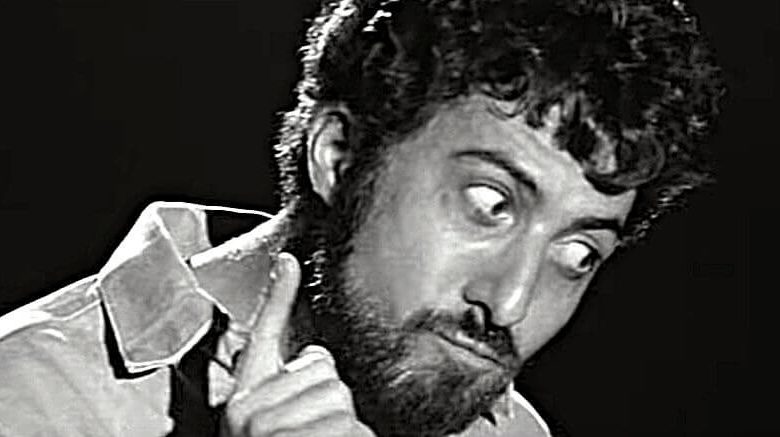
The 1974 film “Lenny” shows police officers watching the comic’s routine, waiting for him to say the “wrong” word.
Cops no longer harass comics. Audiences provide that function now, armed with Twitter and a sense of finely honed outrage. (Warning: Adult language in this clip)
Which makes it a perfect time to revisit the Oscar-nominated “Lenny,” courtesy of Amazon Prime. Dustin Hoffman’s performance as Lenny Bruce is as pitch perfect as we remember, recreating a performer who changed comedy forever.
That’s not hyperbole.
Every politically astute comic today should send the Bruce estate a thank you note. He shattered the stand-up mold forever, blending tart social commentary with bracing language. And he got canceled as a result. Only his “cancellation” involved bankruptcy, jail time and becoming a professional pariah.
The most influential comic of his age died in 1966 from a morphine overdose. He was 40 years old.
“Lenny,” which earned six Oscar nominations but no wins, cast Hoffman as an icon who took years to find his voice. Young Bruce was indistinguishable from any hack comic. He trotted out mediocre impressions, told corny jokes and proved instantly forgettable.
No one could forget Lenny Bruce 2.0.
The film charts his transformation, including his combustible bond with Harriet (“Honey”) Harlowe (a terrific Valerie Perrine). Together, they took on the comedy establishment until their synchronized drug use got the better of them.
Hoffman nails Bruce’s manic charisma, showing how sharp his mind flowered when pushed beyond societal limits. If the on-screen Bruce isn’t as funny as you remember it isn’t Hoffman’s fault. Not all comedy ages well, and much of Bruce’s shtick feels tame today.
RELATED: Desus & Mero Self Censor to Avoid Cancel Culture
Much of his material wasn’t meant to make crowds laugh. Bruce targeted hypocrisy with vigor, an improvement over the clapter comics dominating late night TV.
One “Lenny” sequence, which repeatedly uses the “N” word, is not about the yuks. It’s a crucial way to understand not just Bruce’s legacy but the power of the spoken word.
And that’s where the cultural fault line appears. Was Bruce trying to offend, to titillate, or did he have a deeper purpose in mind? Society struggled with those distinctions, a notion few comics before Bruce bothered to stir.
You can see the comedian straining to defend himself in various court scenes, his comic discipline no match for the era’s stern mindset. Hoffman’s Bruce isn’t a saint, witness how he picks up a nurse seconds after depositing his injured wife in a hospital.
He’s sympathetic all the same, something Hoffman delivers without resorting to stiff theatrics. So, too, is Perrine’s Honey, who helps tell her late husband’s story via flashback.
FAST FACT: New York Gov. George Pataki posthumously pardoned Bruce in 2003, decades after he was convicted on obscenity charges.
The film’s entire structure is both unconventional and modern, a format that would fit snugly with modern storytelling techniques. Director Bob Fosse brings Bruce’s energy front and center, but his visual style proves equally charged.
The production design is equally sublime, recalling the straight-laced ’50s as they gave way to the rollicking ’60s. Still, the more you read about Bruce’s life and legacy, the smaller the film becomes. Perhaps no one movie could effectively capture Lenny Bruce.
RELATED: This ‘SNL’ Joke Brutally Exposes Cancel Culture
Did Bruce offend? Of course. Were some of his routines as hacky as his early days? No doubt. He couldn’t deliver his sharpest bits without flexing his comic muscles first, though. The stand-up stage let him shape his art, at least the times he wasn’t hauled off by the police.
Many of the targets Bruce swatted on screen and off would be welcomed by today’s liberals. That doesn’t mean his act would avoid Cancel Culture.
“Can We Take a Joke?” director Ted Balaker noted the irony of Bruce’s material during a 2016 HiT interview.
“He’s the Godfather of modern comedy, and he was very much a man of the Left … He wouldn’t last a minute on the modern college campus.”
All the more reason to revisit “Lenny.”

